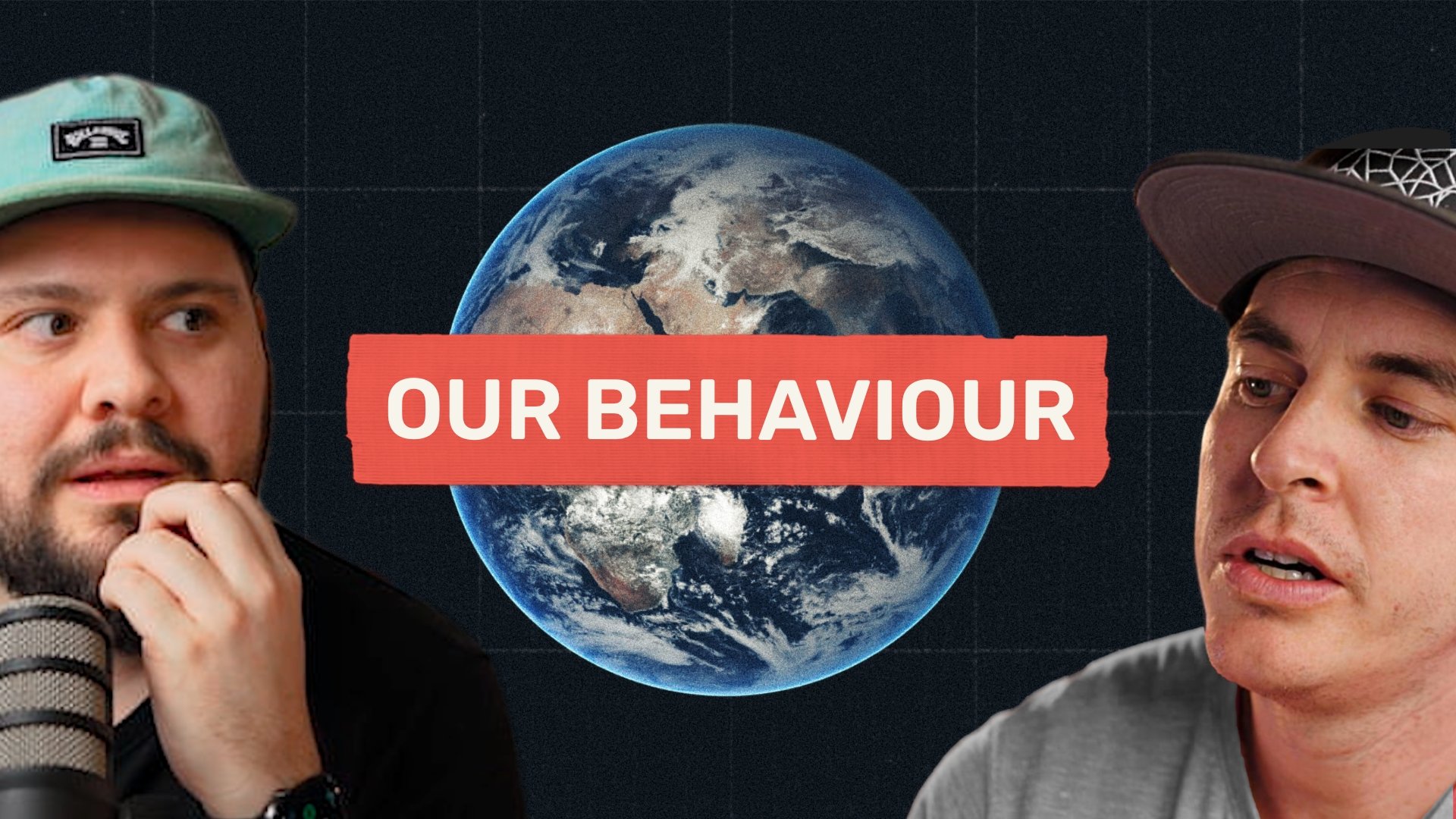Changing our climate behavior 🧠
TL;DR: we’re diving into the science behind climate behavior with Ryan O’Donnell, understanding why people often ignore climate topics, and exploring tools to create content that connects, instead of pushing people away.
Understanding climate anxiety
A while ago we had a conversation with Ryan O’Donnell, behavioral scientist and filmmaker, about the intersect of human behavior and climate change.
Now we'd like to share some of the highlights of that talk with you. And ✨boy✨ did he share some nuggets for you all. So let's start at the start:
If we want to change the way people behave towards our planet, we first need to study the underlying reasons behind their actions. Ryan explains:
"Behavior analysis is about understanding what in the environment influences our behavior.
This understanding is crucial for anyone looking to influence behavior, whether it’s through economics, psychology, or content creation".
As you might have noticed... many people experience a form of avoidance when they think about the (overwhelming) realities of climate change. Some people experiencing climate anxietychoose to ignore the topic all together.
What we learned from this talk though, is that it can happen without you actively thinking about it. As Ryan mentioned:
All it takes is when someone thinks about a moment that was pretty devastating in their life.
For example when I was younger I was in a car accident. If something else happened later on in life, all it would take is thinking to myself quickly — even if I don't realize it — "this is worse than that time I got in a car wreck".
Now, without me wanting it to happen, the stress and anxiety that I experienced during that time equated this new moment to be worse than before... and my body will react as if it's worse. I can't control that.
No wonder that 'shocking' content doesn't work for every audience! If you want to learn more about this topic, we highly suggest the full episode for more context!
It isn’t us vs. them
The best way to connect with your audience? Start using metaphors & examples.
Have you watched the news lately? If so, you might have noticed the world has become increasingly polar.
Incidentally or not, political campaigns and social media algorithms have created an atmosphere of "if you aren't with us, you're against us", even within environmental movements.
But as Ryan mentioned, we need to stop separating groups further if we want people to see eye-to-eye on a topic as climate change.
One possible solution is to start using more unifying words & language in our content, by framing climate issues in ways that people can relate to personally.
I used to do fundraising for people with intellectual disabilities. Speaking to donors based on their political beliefs, about this group's independence and workforce participation, really resonated.
Similarly, climate communication should be tailored to your audience’s values and experiences.
So, let's look at how we can make those connections happen 👇
Behavioral tools for making content:
Here are some of the behavioral tools we covered in the full episode, that can boost your content creation and help you get more people involved in this movement:
Pushing discounting Curves
A discounting curve shows how much people value rewards they can get now versus rewards they can get later. In other words, it’s about our tendency to prefer immediate rewards over bigger rewards in the future.
In other other words: a quick buck vs a healthy planet for our next generations.
By understanding these curves, we can design policies, campaigns and content that encourages short-term actions leading to long-term benefits.
For example
Focus on short-term gains that people can achieve by taking climate-friendly actions (e.g. energy savings or health benefits).
Use visual storytelling to make the benefits of climate action more tangible and immediate (e.g. before and after images showing positive transformation or design infographics to quickly communicate the immediate benefits of climate actions)
Breaking down long-term goals into smaller, short-term milestones that provide immediate satisfaction (like a milestone tracker your audience can join in on, or by creating a series of posts that each address a small step towards a larger environmental goal).
Gamify climate actions to make the experience fun and rewarding in the short term (creating eco challenges or adding a leaderboard to create a friendly competition).
Perspective Taking
In Ryan's words: “Teaching people to take another’s perspective can be embedded in your media. Use terms like I and you, here and there, now and then to create relatable content.”
This approach can force people to look at the world from an outside perspective. You know "put yourself in someone else's shoes" to understand their thoughts, feelings, and experiences.
Use relatable language and adapt your message to the audience’s background and experiences. For example, if you’re speaking to a rural community, use metaphors and examples that resonate with their daily lives. Instead of saying, “Climate change will cause sea levels to rise,” say, “Imagine your farm experiencing longer droughts and harsher weather. That’s one way climate change might impact you.”
We keep repeating: STORYTELLING IS THE WAY TO GO! Personal anecdotes or stories about people similar to your audience can help them see the issue from a new perspective. For example: “Meet Sarah, a mother of two from a small town, who started a community garden to fight climate change and improve local food security.”
Highlight the common goals you share. This helps to create a sense of collaboration rather than confrontation. Like: “Whether you live in the city or the countryside, we all want clean air and water for our families. Here’s how we can work together to protect these vital resources.”
Watch the full episode for more tips
As mentioned, there are a lot of nuggets in this episode that would be way to much to fill a simple newsletter... So follow the rabbit to our Creators For Climate Youtube channel and tune in to the whole conversation!
Listen to the episode!
Video Podcast
Audio Podcast
Or click here to listen on other players
As always, we value your feedback. Let us know what you think of our first episode and what topics you'd like us to cover in the future. Your input helps us shape our content to better serve our community of climate creators.
What’s next:
Community driven knowledge
We’re testing the Science Communication 101 workbook with a handful of driven scientists at the moment. Please join the waitlist if you want to be notified when we launch.





